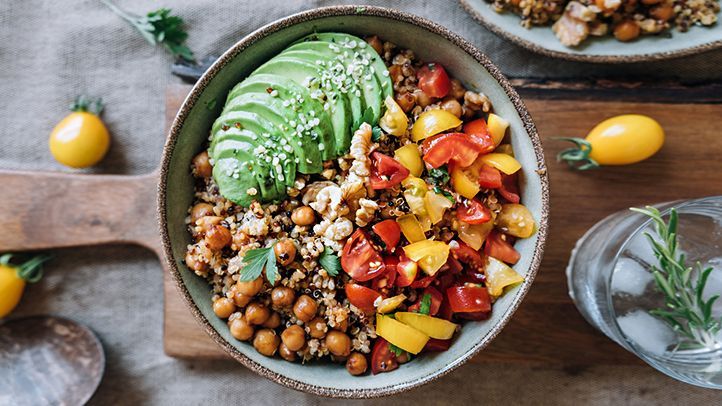Are you considering starting a vegan diet, but not sure where to begin? You’re not alone! Transitioning to a plant-based lifestyle can seem overwhelming at first, but with a few simple tips and tricks, you’ll be on your way to a healthier, more compassionate way of eating in no time.
Start Slowly
One of the biggest mistakes people make when starting a vegan diet is trying to do too much too soon. Instead of going cold turkey on all animal products, start by gradually reducing your consumption of meat, dairy, and eggs. For example, you might start by eliminating meat from your diet one day a week, and then gradually increase from there.
Another way to ease into a vegan diet is to try replacing one animal product with a plant-based alternative each week. For example, you might start by switching from cow’s milk to almond milk, or using vegan butter instead of traditional butter.
Get Creative in the Kitchen
One of the most common concerns people have when starting a vegan diet is that they’ll miss out on their favourite foods. But with a little creativity in the kitchen, you can make delicious, satisfying vegan meals that are every bit as tasty as their non-vegan counterparts.
Experiment with new recipes, and don’t be afraid to try new ingredients. For example, you might try making a vegan lasagne with tofu ricotta, or a veggie burger with a black bean patty. You might also try adding new spices and herbs to your meals to add flavor and depth.
Find Support
Transitioning to a vegan diet can be challenging, especially if you don’t have a support system. Look for like-minded individuals in your community, or join online vegan groups on social media and connect with others who are also transitioning to a plant-based lifestyle.
You might also consider seeking out a registered dietitian who specialises in vegan diets. A dietitian can help ensure that you’re getting all the nutrients you need to stay healthy while on a vegan diet.
Know Your Nutrients
It’s important to be aware of which ones you need to pay special attention to when on a vegan diet. Some nutrients that are commonly found in animal products, such as vitamin B12 and iron, can be more challenging to get on a vegan diet.
Luckily, there are plenty of plant-based sources of these nutrients. For example, you can get vitamin B12 from fortified foods like nutritional yeast, or from supplements. Iron can be found in leafy green vegetables like spinach and kale, as well as in beans and lentils.

Read Labels
When you’re starting a vegan diet, it’s important to become a label reader. Animal products can be hidden in all sorts of foods, from crackers to salad dressings. Be sure to read ingredient lists carefully to ensure that the products you’re buying are truly vegan.
Don’t Be Too Hard on Yourself
It’s important to remember that transitioning to a vegan diet is a journey, not a destination. Don’t be too hard on yourself if you slip up and eat something non-vegan. Instead, focus on making progress, and celebrate your successes along the way.
Transitioning to a vegan diet can be a rewarding and fulfilling experience. By starting slowly, getting creative in the kitchen, finding support, knowing your nutrients, reading labels, and not being too hard on yourself, you can successfully transition to a plant-based lifestyle. So what are you waiting for? Give it a try, and join the growing community of people who are choosing to eat compassionately and sustainably.
#vegan #plantbased #healthylifestyle
Follow Us on Facebook
Follow Us on LinkedIn
